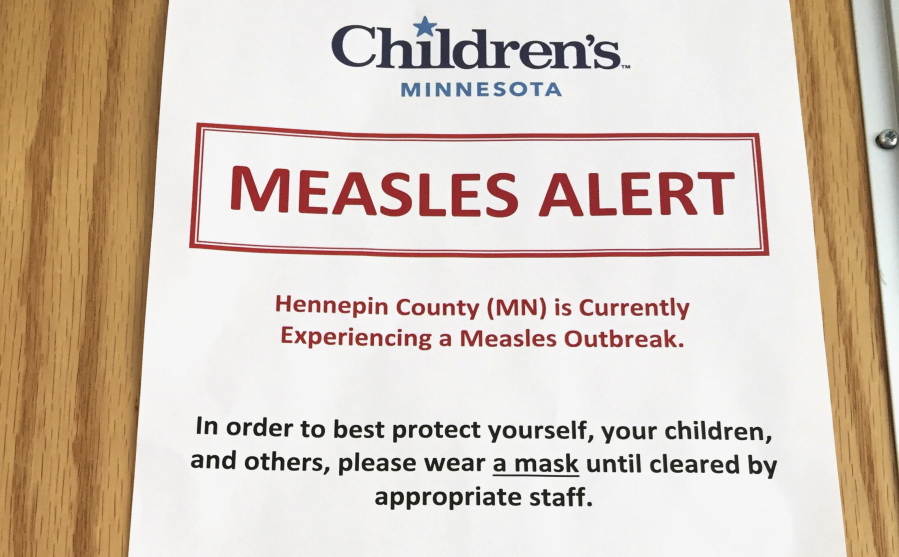LONDON — While parts of the world have all but banished measles, Europe is still getting hit with large outbreaks where some people don’t get vaccinated.
Measles is still a bigger problem across parts of Africa and Asia, where outbreaks can be particularly devastating in malnourished children or those with other illnesses like tuberculosis or AIDS. Most of the 89,000 measles deaths in the world each year are in developing countries.
In Europe, there were more than 21,000 cases of measles and 35 deaths last year, a fourfold increase in cases compared to the previous year. With more than 5,000 cases each, Romania and Italy had the biggest epidemics — and the drive to vaccinate children against measles has even become a leading issue in Italy’s general election on Sunday.
A look at the hurdles slowing efforts to stop the spread of this preventable disease:
WHY DOES MEASLES SPREAD SO FAST?
Measles is among the world’s most contagious diseases. The virus is spread in the air through coughing or sneezing.
It can be prevented with a vaccine that’s been in use since the 1960s. Health officials say that vaccination rates of at least 95 percent are needed to prevent epidemics.
In some regions of Italy, the rate is about 85 percent, one of the lowest in Europe. Epidemics have also emerged in countries including Ukraine, Greece and Romania, where officials have noted declines in vaccination coverage, problems with the vaccine supply and poor disease surveillance.
WHY IS EUROPE A HOTBED FOR MEASLES?
Vaccine skepticism remains in many parts of Europe after past immunization problems.
In France, a national hepatitis B vaccination campaign, suspended in 1998 amid concerns of side effects, led to widespread wariness of immunizations.
And during the 2009 swine flu pandemic, numerous European critics alleged that the push for swine flu vaccinations was the result of drugmakers’ undue influence on the World Health Organization.
A 2016 global survey of vaccine confidence led by researchers at the London School of Hygiene and Tropical Medicine found Europe to be the region that was least confident in vaccine safety.
WHY IS THE VACCINE CONTROVERSIAL?
In 1998, British researcher Dr. Andrew Wakefield published a paper in the medical journal Lancet suggesting a link between the combo measles, mumps and rubella, or MMR, vaccine and autism.
No other studies have found any connection. The paper was later retracted, 10 of its co-authors renounced its conclusions and Wakefield was stripped of his license to practice medicine in the U.K. after officials found him guilty of “serious professional misconduct.”
After the paper was published, however, vaccination rates dropped in Britain, the U.S. and elsewhere, leading to years of measles epidemics across Europe. In the U.K., at least a dozen medical associations including the Royal College of Physicians have issued statements verifying the safety of the MMR vaccine.



